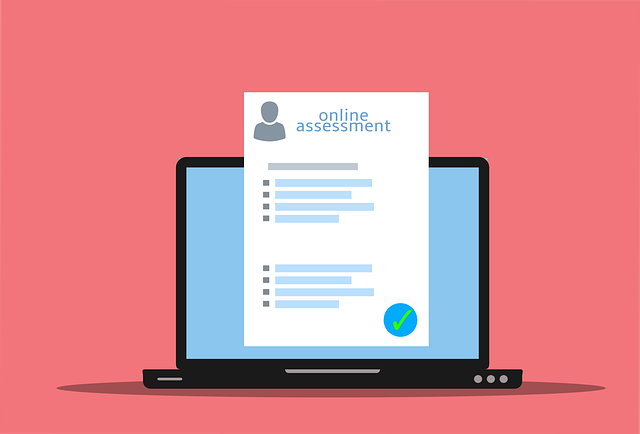Ahrefs vs. Moz
Determining which Search Engine Optimization (SEO) tool is best for your business can be tricky. However, finding the right one can be the boost you need to help manage your marketing.
Two of the most popular choices out there are Ahrefs and Moz Pro. Let’s dive into each and see how they compare!
Ahrefs
Ahrefs is an all-in-one SEO toolset designed to boost your rankings on search engines and increase your traffic. It's used by some big names, including Netflix, Facebook, and even LinkedIn.
They also supply videos and blogs about SEO in general, giving more insight for those of us who may still be learning about online marketing.
Key Features
Every all-in-one tool is going to be a little different, so let’s take a look to see what Ahrefs offers.
Keyword Tool
One of the key things to look for in an all-in-one SEO tool is if it allows you to track your traffic and organic keywords over time with their Keyword Explorer.
Ahrefs' keyword tool gives your business endless keyword suggestions, determines the difficulty in standing out when ranking your keywords, and finds the search volume for said keywords.
It breaks these down into charts and graphs, both of which are easy to read. Even better, their keyword tool allows you to see how your competitors rank with similar keywords. When you know how the competition is doing, you can determine what your next move needs to be, after all.
Website Authority Checker and Rank Tracker
Next, every all-in-one SEO tool should let you monitor not just your overall website rank, but it should also give insight into your perceived authority.
This information will help you determine your SERPs and how relevant search engines think your website is for your industry. If your perceived authority is low, you can take the steps you need to improve your standing.
Site Audit Tool
However, one of the best features that Ahrefs has is the Site Audit. A website audit is when you go through every single page on your site to determine your SEO standing. Doing this by hand, so to speak, is tedious and time-consuming.
The Site Audit tool does all the work for you. It goes through everything you've published and not only flags your issues, but it then gives suggestions on how you can fix them.
Better still, you can manually choose what areas of your website to audit if your site is gigantic. This will let you work on the most relevant areas to save precious time.
Content Explorer
The Content Explorer tool is a great way to see what your clients are actually looking for. The tool researches over a billion web pages to find the most popular articles on any and all topics.
This tool will show you the estimated organic traffic, the number of referring domains (websites that link to the content), its backlink popularity (domain rating), the value the organic traffic has, and also the amount of social sharing it gets.
That's a lot of information, but Ahrefs breaks it down into simple graphs to make it easy to understand. It's a great method of finding link building prospects and topics that don't have heavy competition.
Site Explorer
Ahrefs' Site Explorer tool helps you get a leg up on the competition in three main ways.
Firstly, it does organic traffic research to see what keywords are working for your competitors and their most searched pages. They monitor over 150 million keywords, so you can rest assured they'll have a good base to pull from and get you accurate information.
Next, the backlink checker will show you which websites link back to your competitors and how good the quality of those backlinks is. They have a huge index of live backlinks (at over 14 trillion links) to really help you analyze your competition.
Lastly, it shows you paid traffic research. If your competition is doing paid search advertising, Ahrefs will show you. Plus, they'll show you where they aim that paid traffic.
Pros
- Website audit tool to optimize your content
- Site Explorer to analyze your competition
- Keyword Explorer to see what your customers and clients are actually looking for
- Content Explorer to see your industry's top-performing content and learn from their success
- Rank Tracker allows you to monitor your progress
- Overview function that gives detailed graphs that are easy to read, including the top issues that require your attention
Cons
- Doesn't have a great API tool
- Most of the tool boils down to link management
Moz Pro
Moz is also an all-in-one SEO tool, which means it does everything you should need to optimize your website for SEO.
You'll get an SEO platform and Search Engine Results Page (SERP) analytics and Application Programming Interface (API). They claim to provide the most accurate SEO data with almost 41 trillion links indexed in their Link Explorer.
Plus, their blog is one of the most impressive when it comes to detailed information on SEO in general, so it's a fantastic place for anyone still learning to start.
Key Features
To get a better understanding of Moz Pro, let’s look at some of its most promising features.
Site Audits
One of Moz Pro’s best features is its Site Audit. It goes through even large websites relatively quickly, showing both new and any recurring issues you may have over time.
If you want to understand your business’s overall SEO, the audit allows you to uncover trends to take advantage of and opportunities to improve.
It’s relatively easy to read, as well. The tool gives you colored charts, breaking down any issues you may have by category, including both new and total issues.
Rank Tracking
Rank tracking specifically refers to your keywords. Moz Pro will go into detail about how your keywords perform over time. You can look at monthly or weekly performance or even set a specific range of time to analyze.
Better still, you can compare how your keywords function on mobile versus how they perform on desktop. This will tell you how your clients behave on mobile devices compared to what they’re searching for on desktop.
Backlink Analysis
If you want to investigate your website’s authority and how it ranks on SERPs, this is the tool to use.
The Link Explorer feature looks at your backlinks, which of your pages are most valuable, your linking domains, and your anchor text. They analyze this data and show you how to improve the quality of your links to boost your authority.
It then allows you to compare your standing to your four biggest competitors. It will show you the quality of their linking domains and then compare how they may have fluctuated over time. This can give a good insight into how to improve your own standing.
Keyword Research
To truly have your website be optimized for success, you’re going to need to do keyword research.
Keyword research can be tedious, but the Keyword Explorer tool makes it a whole lot easier. Not only does it analyze your keyword usage and content strategy, but it also allows you to create keyword lists.
These lists will categorize, prioritize, and even compare the keywords you’re using to develop your SEO and outrank your competition.
On-Page Optimization
All the analysis in the world won’t help if we don’t know how to apply it. That’s where Moz Pro can help.
Simply enter a keyword or phrase and page combination, and Moz will give you a prioritized list of recommendations along with the steps you need to take to maximum optimization.
Custom Reports
Moz Pro makes reports easy to digest with drag-and-drop charts and graphs. You can add your own notes to these charts to keep your data organized, and you can even have reports regularly generated and automatically delivered to any clients you choose.
These include site crawl data, SERPs rankings, and how you compare to your competitors. You can monitor these trends over time or get a quick snapshot of your results.
Pros
- Keyword explorer to keep your content optimized and will assist in prioritizing your keywords
- Chrome extension that lets you monitor any unique web page
- Site explorer to give you your organic visits and rankings as well as a detailed link profile analysis
- Business listing analysis that lets you access your domain and page authority
- Offers a hearty package of free tools
Cons
- Not quite as many features as the competition
- Isn't as fast to process updates as others
- May be less intuitive to use
- Often less functional and efficient than Ahrefs
Comparison and Overview
The two tools may seem similar, but they have some stark differences. Let’s examine how each treats some of the most important features.
Domain Authority
One of the biggest differences is how the two generate domain authority.
As a quick refresher, domain authority is another way of determining your ranking on search engines.
Ahrefs focuses on the strength of your link profile. Therefore, the more links you have, the higher your rating on Ahrefs will be.
However, Moz Pro instead determines your rank in search engines based on your link profile. That means that they look at the links your site has and specifically determines how well they correlate with your content and how that will influence your SERPs rank.
In this instance, Moz may give a more accurate representation of what you can expect. For Ahrefs, it's enough to have plenty of links to boost your domain ranking in their eyes. Moz instead looks at the whole picture, meaning your rank may end up being lower.
That isn't a bad thing, though. When you have an accurate look at your domain authority, you can take the necessary steps to correct any issues and get your rank up.
Rank Tracking
The big point of using these all-in-one tools is to get your website boosted. Otherwise, there's no point in spending your money on a service that falls short.
First, Moz lets you check your rankings by searching a list of your target keywords for specific pages. Then, Moz will display how each page is performing.
Ahrefs checks different domains and subdomains by searching exact URLs and how they perform on Google. It will generate a list of any keywords that boost your rank on search engines.
Link Monitoring
Both Ahrefs and Moz allow you to see how your link profile is standing up against the competition.
Moz lets you input any URL (yours or a competitor's) and then get a complete profile on it, including information on backlinks and page and domain authority.
With the report, you can see where you need to expand and get new backlinks.
However, Ahrefs lets you look at various aspects of linking, including backlinks, keywords, and competitor analysis. With the tool, you can see the anchor text, do-follow and no-follow links, as well as when links were made.
This gives an insight into your own link profile, but also how your competitors are holding up.
Keyword Research
We've talked about why keywords are important, so let's compare how Ahrefs and Moz let you do keyword research.
Ahrefs has a Keyword Explorer to find keywords to boost your ranks. It also gives you related terms, so you can be sure you're covering all your bases.
Further, it gives you rank data to see how competitive each keyword is and which has the most potential for growth. Plus, you'll get their global rank tracking to see how your keywords track in many different countries.
Moz also has a Keyword Explorer that will show the most important and relevant keywords for your site. However, its focus is on helping you pare down your list.
Don't fear! It also gives you insights into your page authority and domain authority, which will give a thorough prediction of how your pages (and site overall) will perform on SERPs.
Summary
Moz Pro and Ahrefs are two of the most popular all-in-one SEO tools for a reason. They both offer excellent services, enhanced analysis, and large data banks that are updated frequently.
However, which you choose depends on your particular needs. Ahrefs focuses more on links and improving your strengths there, while Moz Pro provides more overall improvements to your entire site. Ahrefs is faster, but Moz gives a comprehensive picture.
At the end of the day, which tool you need will be up to you and your unique needs.
FAQ
Have more questions about the matchup of AHREFS vs. Moz? Here’s some additional insight.
How Is SEO Changing?
SEO is never stagnant. We’ve written about what SEO is before, but search engines like Google are always updating their algorithms.
For example, one of Google’s latest updates (affectionately called BERT, standing for Bidirectional Encoder Representations from Transformers) means that searches are getting smarter. Now, searches will be able to understand nuance in ways they never have before.
But there has also been a shift towards mobile these last few years. More and more people are favoring mobile devices over traditional laptops or desktops. Therefore, SEO strategies need to reflect mobile usage more and more.
How to Conduct Keyword Research?
The most efficient way to do research is by using a keyword explorer tool. Fortunately, both Moz Pro and Ahrefs come with such a tool, meaning you don't need to invest in extra products or services.
Otherwise, you can use Google's Keyword Planner, a good alternative. It helps you discover new keywords and comes up with suggested alternatives to increase your traffic. Unfortunately, you do need a Google Ads account to use this service.
What Are SEO Backlinks?
An SEO backlink is one way that search engines like Google and Bing determine which websites are top quality. A backlink simply means how many outside sources link back to your content.
The more people who end up linking back to your web pages, the better. There is a caveat, however. If a bunch of low-quality or spammy websites are linking to your pages, your ranking may actually take a hit as search engines will be wary of your site.













